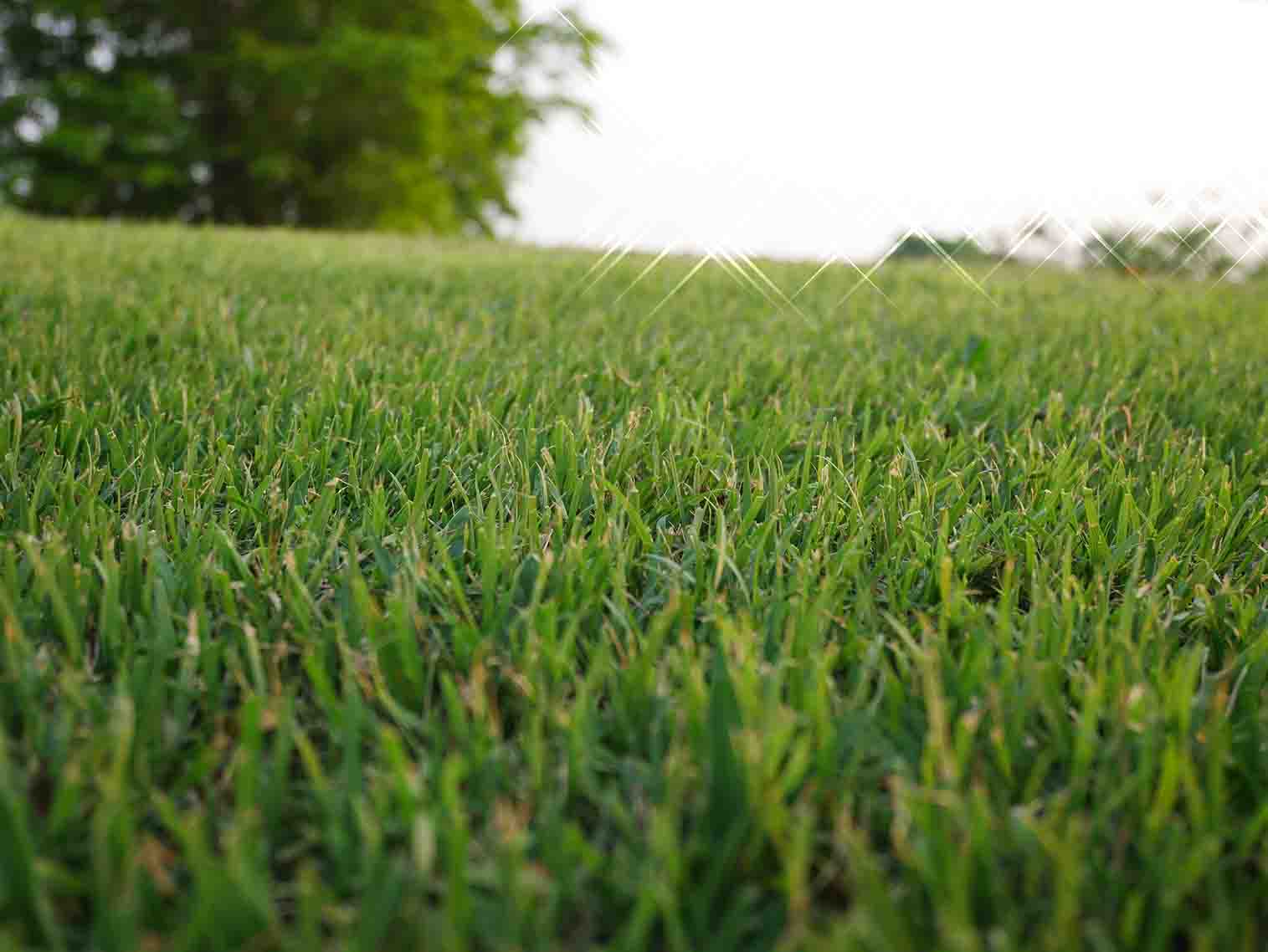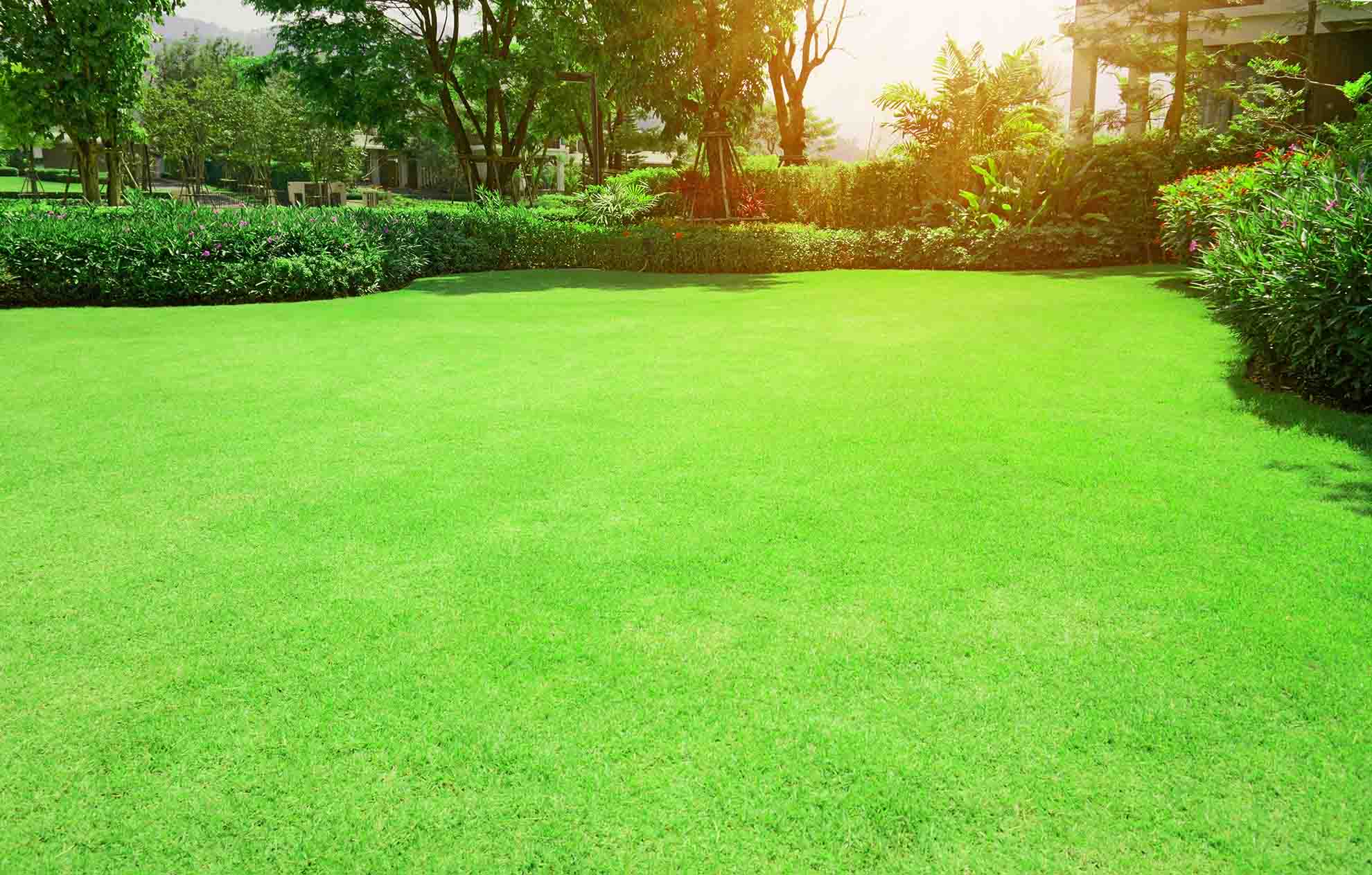Last Updated:
December 18, 2025
Bermudagrass is one of the most popular turf varieties across Georgia for good reason. Its ability to withstand scorching heat, recover quickly from wear, and maintain an attractive green appearance in the right conditions makes it a go-to choice for both residential lawns and athletic fields.
Even with its resilience, Bermudagrass does still require proper care to stay healthy in Georgia’s unique climate. This guide will walk you through the key details of Bermudagrass and the best lawn care practices to make sure it thrives.

Bermudagrass (Cynodon dactylon) is a warm-season grass that thrives in full sun and high temperatures, making it an excellent match for Georgia yards. Unlike bunch-type grasses, Bermudagrass spreads aggressively through both stolons (above-ground runners) and rhizomes (underground stems), creating a dense, carpet-like lawn. This spreading growth habit allows it to repair itself quickly after damage, but it can also make the grass invasive if not properly maintained around flower beds and hardscapes.
Its natural drought tolerance and heat resistance set it apart from many other turf options, although it does slow down and enter dormancy in the cooler winter months. During this period, some homeowners choose to overseed with ryegrass to maintain year-round color.

Homeowners can establish Bermudagrass either by seeding or sodding. In Georgia’s hot climate, seeding is typically done in late spring through early summer when soil temperatures are consistently warm. Sod, on the other hand, provides immediate coverage and is available year-round, though it comes with a higher upfront cost.
Before planting, soil preparation is essential. Georgia soils are often compacted, so it’s recommended to loosen the soil 4–6 inches deep and, if necessary, amend it with compost to improve water retention. Bermudagrass prefers a soil pH between 6.0 and 7.0, so a soil test can help determine if adjustments are needed.
What makes Bermudagrass so well-suited for Georgia is its remarkable adaptability to the state’s humid conditions. It performs exceptionally well in full sun and high heat, but it does have limitations. Keep the following in mind when you are going about your lawn maintenance routines for bermudagrass.

Georgia soils often lack the nutrients necessary for vibrant turf growth, which makes fertilization especially important. Bermudagrass responds very well to nitrogen, which promotes green color and vigorous growth.
Most Georgia Bermudagrass lawns need between 4 and 6 pounds of nitrogen per 1,000 square feet annually. This is usually divided into monthly applications from late spring through early fall. A slow-release nitrogen fertilizer is ideal because it provides a steady supply of nutrients without causing sudden growth surges. Phosphorus and potassium may also be needed depending on your soil test results, but nitrogen is the primary driver of Bermudagrass health.

Georgia’s climate makes proper irrigation one of the most important aspects of Bermudagrass care. While it is drought-tolerant, Bermudagrass performs best with consistent watering. Deep, infrequent watering encourages stronger root growth and improves drought resilience, while shallow, frequent watering can lead to weak turf. Georgia’s frequent rainfall means you have to pay close attention to how much water your lawn gets.

Mowing Bermudagrass correctly is crucial for both its health and appearance. Because it grows aggressively, frequent mowing is necessary during the summer.
For residential lawns, the recommended mowing height is between 0.5 and 2 inches, depending on how manicured you want your lawn to appear. Golf course fairways, for example, are kept very short, but most homeowners are comfortable with slightly taller turf.
The golden rule is never to remove more than one-third of the grass blade at a time. Cutting too short, or “scalping,” stresses the lawn and can lead to thinning, which opens the door for weeds. Keeping mower blades sharp ensures a clean cut and reduces the risk of disease. Rotating mowing patterns also helps prevent soil compaction and ruts.

Thanks to its dense growth, Bermudagrass naturally crowds out many weeds. However, some opportunistic species, like crabgrass, goosegrass, and nutsedge, can still be a problem in Georgia lawns.
The best defense against weeds is maintaining a thick, healthy lawn through proper mowing, watering, and fertilization. When needed, herbicides can be used, but timing is critical. Pre-emergent herbicides applied in early spring are effective at stopping summer weeds before they sprout. For established weeds, selective post-emergent herbicides can be used, but it’s important to follow product directions carefully to avoid damaging the Bermudagrass itself.
Caring for Bermudagrass in Georgia is different from caring for grass in cooler or wetter regions. While many homeowners enjoy the challenge of maintaining their own lawns, professional lawn care services can take the guesswork out of the process.
Here at Pro Outdoor, we know how to get the most out of bermudagrass in your lawn so that you can have healthy and full turf all year. Call us today for more information on the best lawn care in Albany, Georgia!